<< Previous | Displaying results 6151-6175 of 6769 for "" | Next >>
To carry out the "Final Solution," the Nazis established killing centers in German-annexed and occupied Poland. Learn more about these killing centers, also referred to as extermination camps or death camps.
The Nazis perpetrated mass murder against groups considered to be racial, civilizational, or ideological enemies. This included Soviet prisoners of war. Learn more
Holocaust denial is any attempt to negate the established facts of the Nazi genocide of European Jews. Explore the articles in this series to learn about Holocaust denial and its origins.

Nazi racial ideology has no basis in reality. Like other forms of racism, Nazi racism was rooted in prejudice. It was based on Adolf Hitler’s antisemitic, racist ideas. Learn more
Browse a series of articles about the establishment of the International Military Tribunal at Nuremberg and the larger context of postwar trials.
Learn about the history and causes of antisemitism (hatred of Jews) and its role in Nazi ideology.
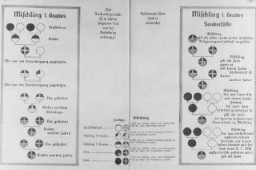
The Nazis took control of the police and turned Germany into a dictatorship; implemented a racist ideology; and carried out brutal policies across annexed and occupied Europe. Learn more.
Learn about Jewish life in Germany and Europe before WWII, antisemitic laws, and Nazi violence and discrimination against the Jews of Germany.
The Nazi “Final Solution to the Jewish Question” was the deliberate, planned mass murder of European Jews. Learn more about how the Nazis implemented the "Final Solution."
Learn about the history of the Nazi camp system, the different types of camps, who was imprisoned and why, and conditions in the camps.
Browse a series of articles describing how some Jews survived the Holocaust; rescue efforts; anti-Nazi resistance groups; and revolts against Nazi oppression in the Warsaw ghetto and in killing centers.
Learn about some of the Righteous Among the Nations, non-Jewish individuals who have been honored by Yad Vashem, Israel's Holocaust memorial, for risking their lives to aid Jews during the Holocaust.
Learn about the experiences of 6 Holocaust survivors whose journeys brought them to the United States: Thomas Buergenthal, Aron and Lisa Derman, Regina Gelb, Blanka Rothschild, and Norman Salsitz.
Learn more about resistance in some of the smaller ghettos of eastern Europe in the face of overwhelming odds and desperate scenarios.
With decrees, legislative acts, and case law, Nazi leadership gradually moved Germany from a democracy to a dictatorship. Learn more about law and justice in the Third Reich.
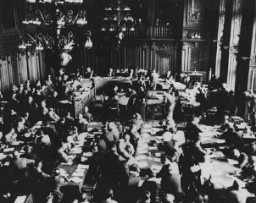
As Allied troops moved across Europe against Nazi Germany in 1944 and 1945, they encountered concentration camps, mass graves, and other sites of Nazi crimes. Learn more
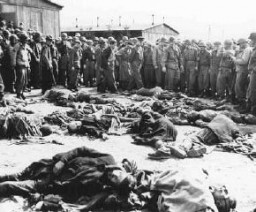
Explore key themes related to the end of the Holocaust, including liberation, challenges facing survivors, displaced persons camps, and postwar justice.
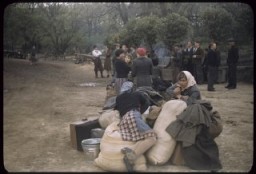
Explore key themes, concepts, and topics related to the history of the Holocaust. Learn about the Nazi persecution of Jews and the implementation of the "Final Solution."
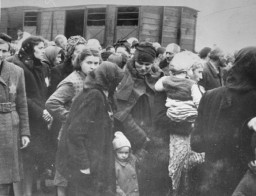
Jews were the primary targets for mass murder by the Nazis and their collaborators. Nazi policies also led to the brutalization and persecution of millions of others.
Despite the inaction of most Europeans and the collaboration of many in the persecution and murder of Jews, some individuals and networks from all social and religious backgrounds aided Jews. Learn more.
The Nazi rise to power marked the beginning of the Third Reich. Learn more about the Nazi state from its suspension of basic civil rights to the implementation of mass murder.
Explore a series of articles about the experiences of women during the Holocaust.
Explore some oral history testimony excerpts describing the experiences of women during the Holocaust.
Examine artifacts such as clothing and letters and explore the experiences of women during the Holocaust.
Learn about American women spanning a wide range of roles and activities or experiences during the Holocaust, from First Lady Eleanor Roosevelt to US Army nurse Pat Lynch.
We would like to thank Crown Family Philanthropies, Abe and Ida Cooper Foundation, the Claims Conference, EVZ, and BMF for supporting the ongoing work to create content and resources for the Holocaust Encyclopedia. View the list of donor acknowledgement.